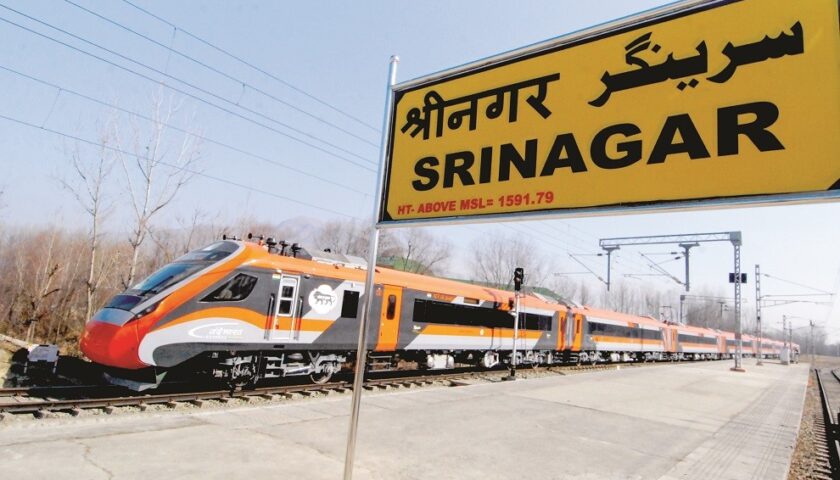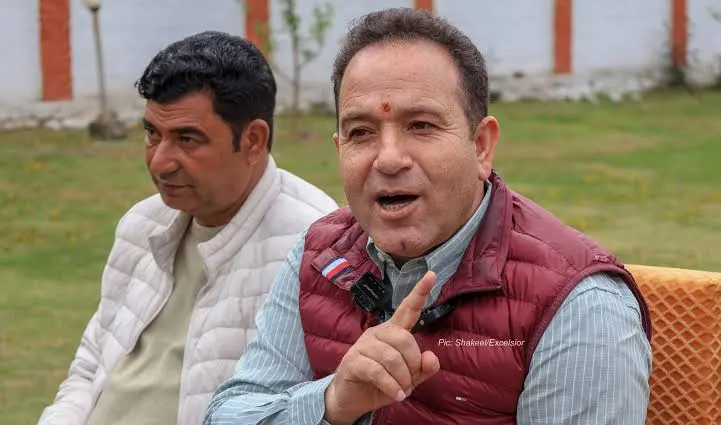Peoples Democratic Party (PDP) vice president Sartaj Madni has taken serious exception to the BJP’s approach towards Kashmir on behalf of his party.
In a statement on 31 May, Madni urged the coalition partner to give up its “confrontationist politics” and check its “provocative voices”.
Dialogue The Only Way
More importantly, he once again made a strong pitch for dialogue with Hurriyat and Pakistan despite the fact even though the BJP has ruled out any engagement with Kashmiri separatists. “The PDP is in alliance with the BJP on a clear agenda of peace and dialogue on Kashmir. Both the parties agreed upon it as part of the agenda. Our party will follow this path with fidelity and against all odds,” Madani said.
Madni said the resolution of the Kashmir issue was “an article of faith with the PDP”. “It forms the core of late Mufti Mohammad Sayeed’s vision as he believed neither war nor any machinations were substitute to dialogue and reconciliation,” Madni said. “Honesty demands that people’s sufferings end and their genuine aspirations are met, which is not possible without a sincere desire for gaining the trust of all stakeholders.”
A Shaken PDP
However, senior BJP leaders, from party president Amit Shah through Venkaiah Naidu and Jitendra Singh to Ram Madhav – the architect of the PDP-BJP coalition and its ‘Agenda of Alliance’ committing the BJP to such a dialogue – have ruled out any talks with Hurriyat.
In fact, Prime Minister Narendra Modi too expressed himself against such an engagement when Chief Minister Mehbooba Mufti recently met him. But even though this has made the PDP’s situation very embarrassing in Kashmir, the party isn’t in the best shape to do anything about it.
After the unrest last year and its humanitarian toll, public support for the party in Valley is at an all time low. There is thus the least chance that in case of a break-up of the coalition, the PDP would be voted back to power. This has drastically circumscribed the party’s options, making it increasingly difficult for it to up the ante to a point where the coalition could break.
More so, the central government has been toying with the idea of Governor’s rule in Kashmir to take the reins on how things are run in the state.
BJP’S VOLTE-FACE
To try and drive home the point and to assuage the sense of deep betrayal among its constituency, it came down to Madni to utter some politically expedient antagonism against the BJP. It isn’t as though people in the Valley are eagerly seeking a dialogue with separatists, but BJP’s refusal to live up to its own commitment is being viewed as a piece of New Delhi’s “all-too familiar bad conscience” on Kashmir.
“In public memory in Kashmir, there is a fundamental distrust about New Delhi’s commitments to the state,” says the columnist Naseer Ahmad. “The question being asked in Kashmir is that if Delhi can’t fulfil the commitments made to the pro-India political parties in the state, how could it be an honest interlocutor in an engagement geared to find a resolution of the larger political issues facing the state”.
Broken Promises
This realisation has not only detrimentally affected the political standing of the PDP, which is now seen complicit in the BJP’s volte face but it has also shrunk the space for the separatist engagement with the Centre.
In fact, in response to this unhelpful state of affairs, even moderate separatists like Mirwaiz Umar Farooq and Yasin Malik have ruled out any talks with the Centre unless Pakistan is also involved, thereby echoing the hardline stance of Syed Ali Shah Geelani.
However, the PDP’s dilemma is not the Centre’s backtracking on the talks with Hurriyat, which for all the party’s show of seriousness, has little more than rhetorical value for it. Support for Delhi’s engagement with Hurriyat and Pakistan makes the PDP a party to a purported settlement effort on Kashmir, an objective in which otherwise a state government has little role.
But to the PDP’s detriment, the BJP has gone back on almost all the mutually agreed commitments contained in the Agenda of Alliance. The coalition’s single most redeeming feature, its promise of the economic recovery has so far also been realised only in breach.
The situation has often come to a point where while the political and ideological confrontation between the alliance partners has moved to the centre stage, the governance hasn’t made much headway.
However, the alliance is likely to go on regardless, as it has so far. Under the circumstances, to keep it going is the only way thanks to the PDP’s lack of an alternative course of action.




